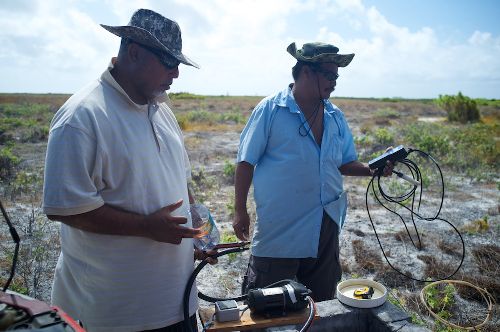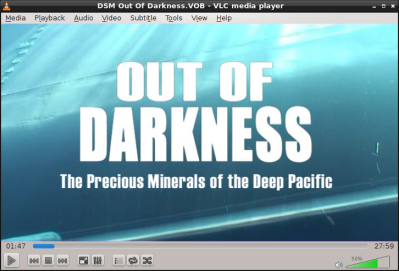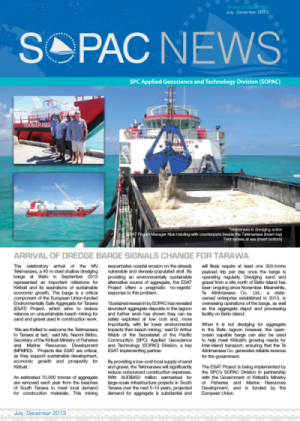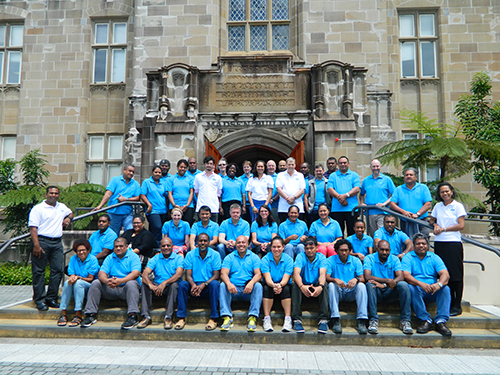The Water and Sanitation Programme has commenced implementation of the “Improving Drinking Water Supply for Kiritimati Island” project. The objective of the project is to improve livelihoods and secure safe and sustainable drinking water with the focus on infrastructural upgrade of the reticulated supply to the two main communities of London and Tennessee. The project is funded by the European Union with a budget of €4.8 million to be implemented over a four year period.
The Contribution Agreement between the EU and SPC was signed in January 2014 with the Project Coordinator, George Beck, now based in Kiritimati Island. The project will be working closely with the Ministry of Line and Phoenix Islands Development (MLPD), Government of Kiribati, including other key stakeholders to improve the supply of drinking water to the two main communities on Kiritimati Island.
The first task will involve rehabilitating the existing reticulated infrastructure to improve the flow of water and collect data so as to better understand the status of the groundwater lenses. The project will also focus on building capacity at MLPD and undertake awareness in promoting good management and conservation practices.











